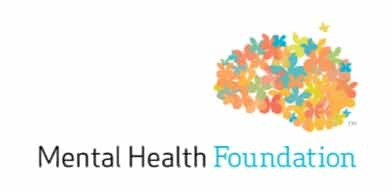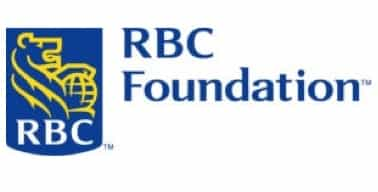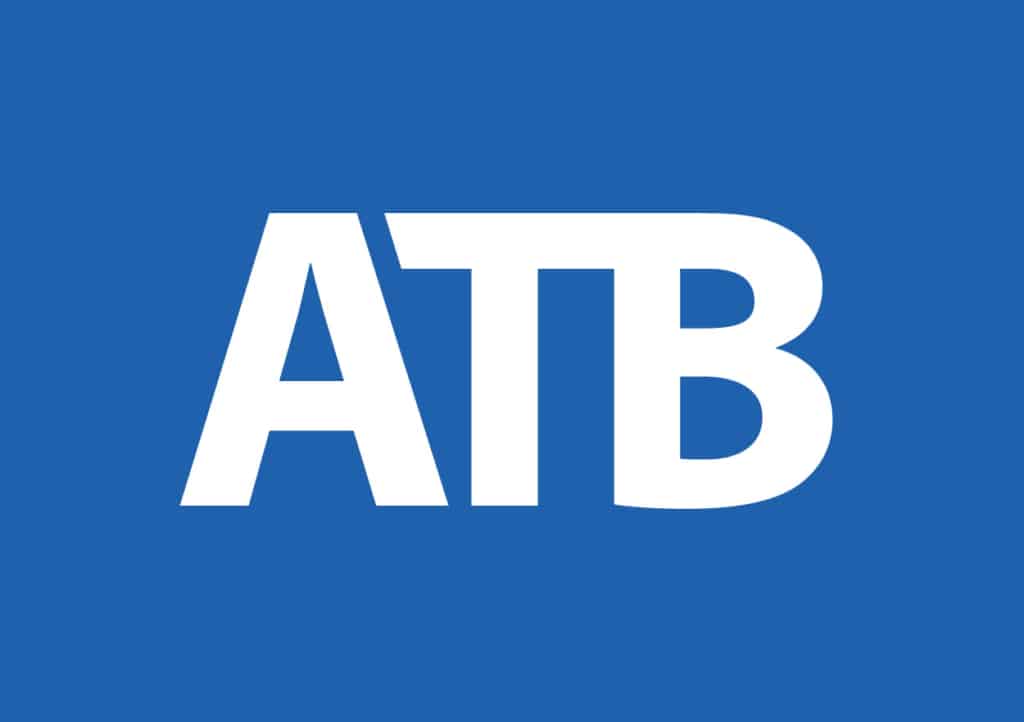To some people, talking about nutrition is like talking about diets, fads, bland food, and self-consciousness. The truth is, nutrition and healthy eating are about having an effective relationship with what you put into your body. It’s about maintaining balance in the foods you choose to ingest in order for your body to have enough energy to function optimally.
Nutrition can actually be fun!
People sometimes confuse healthy eating with dieting, but they are not the same thing. Dieting is about watching what you eat with the goal of achieving a certain body shape or weight. Healthy eating is about listening to your body, eating a variety of foods, and taking the best care of the body you have. While dieting is often short term, healthy eating is a life-long journey.
Benefits of Healthy Eating
Healthy eating has many benefits including, but not limited to:
- Better mood and the ability to handle stress
- Increase in energy
- Better focus
- Improved body function
Food Guides
Food guides are educational tools that give recommendations on how people can incorporate healthy eating into their lifestyle habits. They are often created by governments and are made based on research on nutrition. They are also created based on factors such as culture, food supply and production. Although different countries around the world have different food guides, they all have some similarities.
Recommendations From Canada’s Food Guide
- Be mindful of your eating habits
- Cook more often than you eat out
- Enjoy your food
- Eat meals with others
The food guide also recommends:
- Limit highly processed foods
- Make water your drink of choice
International Foods
The world is a big place and it’s important and can be interesting to learn about different eating traditions across the world!
Below are some food guides from around the world – Canada, Benin, South Korea, Qatar, Germany, and Antigua and Barbuda.
For more information on food guides across the world, check out the Food and Agricultural Organization of the United Nations (FAO).
It is important to take note that food guides all over the world recommend that you eat a balanced diet that includes foods that provide the building blocks needed for your body to be healthy and function the way it is supposed to.
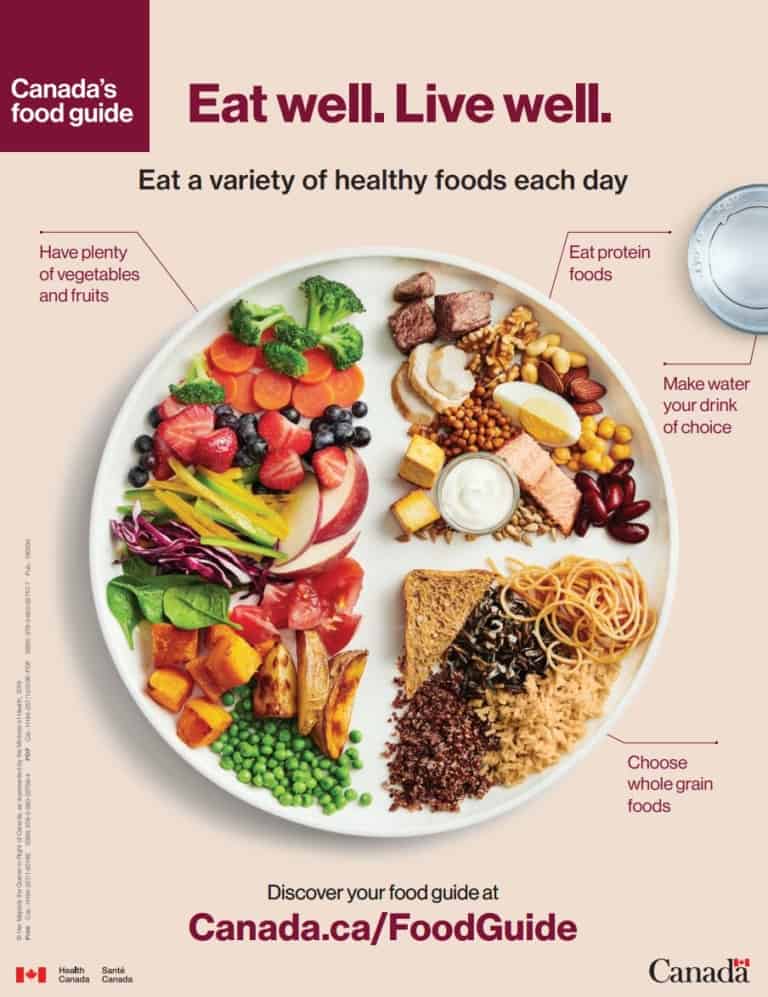
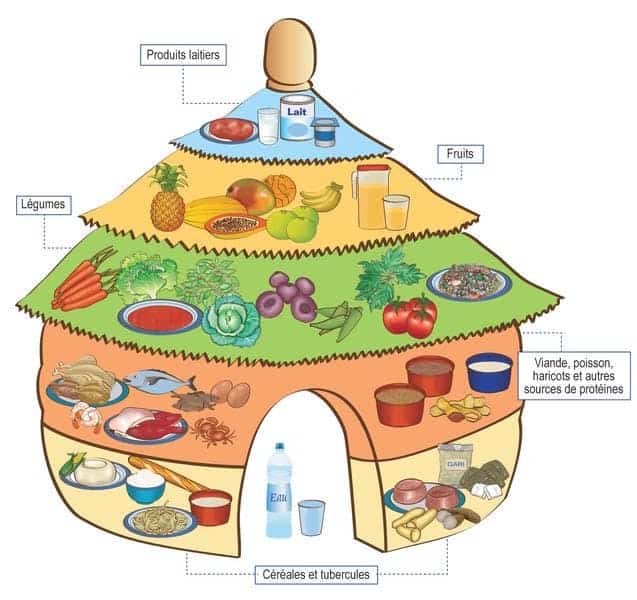
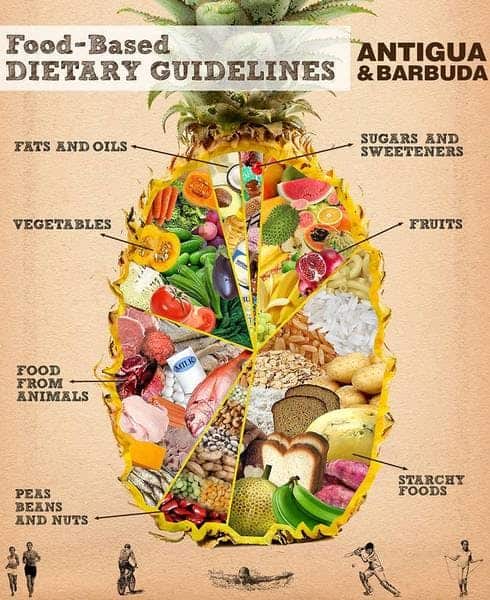
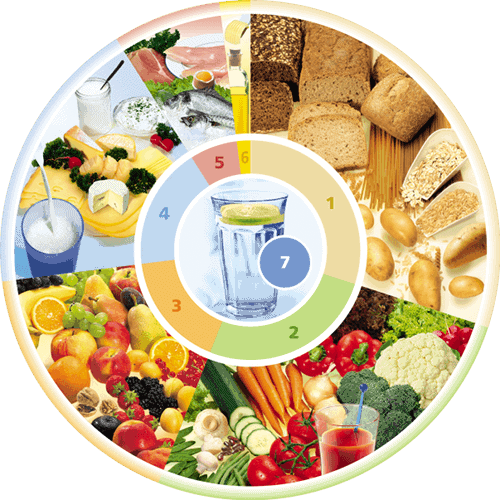
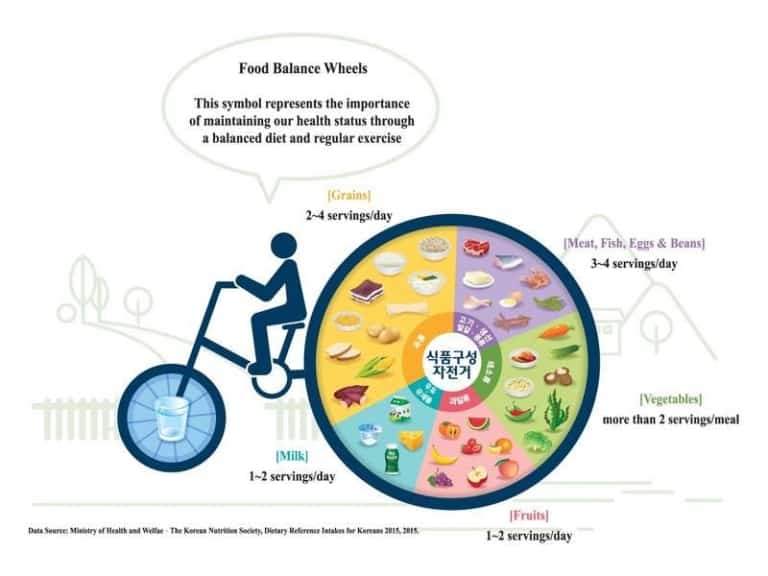
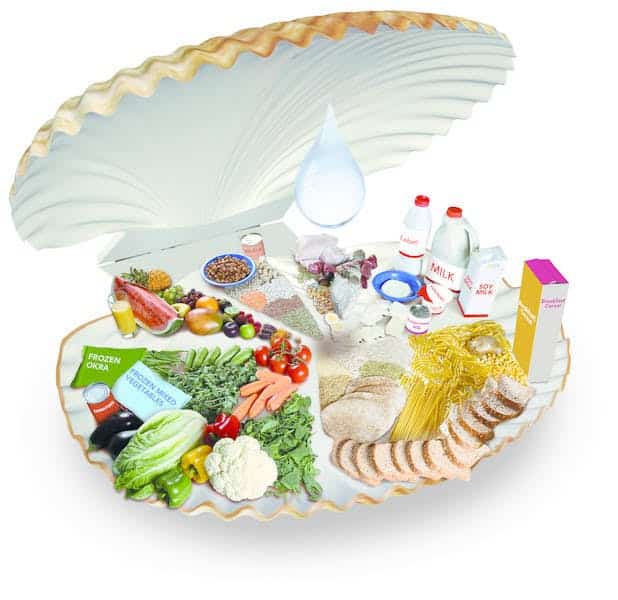
Processed Foods and Sugars
Healthy eating doesn’t mean never eating your favorite foods (unless your favorite foods are broccoli or gai lan!). Instead, it means eating a variety of whole foods, only eating processed foods a few times per month, and eating less food and drink that are high in sugar.
Foods that are highly processed can include:
- Store-bought treats like cookies, crackers and potato chips
- Ice-cream and flavored/sweetened yoghurt
- Fast food
It is important to cut down on processed foods, which often have too much salt or sugar added to them. You don’t have to completely cut out the processed foods that you enjoy as a treat, but you might consider slowly decreasing the amount of sugar and salt you eat. This is because eating too much sugar or too much salt can cause chronic health issues, including heart disease, kidney disease, and can cause other issues such as high blood pressure and strokes.
Drinks can also contain high amounts of sugar, like:
- Fruit juices
- Fizzy drinks, like pop or soda
- Alcoholic drinks
Consider switching out these drinks with water. Yes, you might have heard it before, and it’s true: water is very important to drink! Water is vital to drink because it helps our bodies work well, and it improves our overall health. When we move our bodies, use the bathroom, and even breathe, our bodies lose water. And it needs to be replaced, so staying hydrated is super important!
A common recommendation is to drink about 6 to 8 glasses (1500 to 2000 ml) of water every day, and this might vary a little bit for each person. The amount of water they need depends on whether they have health concerns, how much they move their body, and how hot and dry it is where they live.
The tips below can help to make water your drink of choice:
- Drink it hot, cold or room temperature
- Drink water with your meals
- Carry a reusable water bottle
- Drink during and after physical activity
- Keep a pitcher of water in the fridge or on the table for easy access.
- If you can, try adding some natural flavor to your water such as:
- Blackberries + Mint
- Lemon + Fresh Basil
- Raspberries + Cucumber
Healthy eating doesn’t have to be hard. It can be easy and cheap to make. Check our page on Preparing Meals to learn the basics of meal prep on a budget!
For more healthy eating tips check out the Canada food guide. If you are struggling with eating habits, there is nothing to be ashamed of. Talk to your doctor, or consider reading our pages on Body Image and Eating.
Sustainable Eating
As with many other global issues, the idea of sustainable food and food production is a topic that you might be interested in. The way food is produced, distributed and eaten forms an important link between health, social and environmental systems.
Some important ideas related to sustainable eating include:
- Aiming to be waste-free
- Buying local and seasonal foods
- Paying attention to fair trade practices
- Growing your own food
- Advocating for better nutritional balance in prepared foods
- Increased awareness of how food is made and distributed to cities and people
- Advocating for better food access for people who are low income or experiencing homelessness
- Selecting sustainable fish products
Little choices that we make each day can impact the world around us!
Want to learn more about nutrition and healthy cooking for teens and young adults? Check out our Groups and Workshops page to check when the next Converse & Cook workshop is happening!
Looking for someone to talk to? Check out Kickstand Connect to sign-up for private, free virtual appointments with our Mental Health Therapists and Peer Support Worker.
Sources:
Healthy eating for teenagers (wsh.nhs.uk)
Healthy Eating 101 – Foundry – (foundrybc.ca)
Healthy Living for Teens (healthyschoolsbc.ca)
Here’s what food guides around the world look like | CBC News
